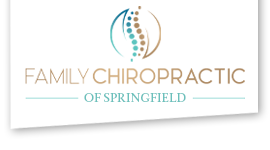Chemical Peels in Springfield VA

The Benefits of Chemical Peels for Skin Rejuvenation in Springfield VA
Chemical peels in Springfield VA are a popular cosmetic procedure designed to improve the appearance and texture of the skin. By applying a chemical solution to the skin, these treatments exfoliate the outer layer of dead skin cells, revealing smoother, more radiant skin underneath.
One of the primary benefits of chemical peels offered at Family Chiropractic of Springfield is their ability to address a variety of skin concerns, including:
- Fine lines and wrinkles
- Sun damage and hyperpigmentation
- Acne and acne scars
- Uneven skin tone and texture
Chemical peels can be customized to suit individual skin types and concerns, with options ranging from superficial peels for mild exfoliation to deep peels for more significant skin resurfacing.
These treatments are typically performed in a dermatologist's office or medical spa by a trained skincare professional. While some mild discomfort or redness may occur immediately following the procedure, most patients experience little to no downtime and can resume their normal activities shortly after treatment.
Overall, chemical peels offer a safe and effective solution for rejuvenating the skin and achieving a more youthful complexion.
Understanding Different Types of Chemical Peels in Springfield VA
Chemical peels come in a variety of formulations and strengths, each targeting specific skin concerns and providing different levels of exfoliation. Here are some common types of chemical peels:
- Superficial Peels: These mild peels use gentle acids like alpha hydroxy acids (AHAs) or beta hydroxy acids (BHAs) to exfoliate the outermost layer of the skin. They are suitable for addressing minor skin imperfections and require little to no downtime.
- Medium Peels: Medium-depth peels penetrate deeper into the skin, using stronger acids like trichloroacetic acid (TCA) to target moderate wrinkles, sun damage, and uneven pigmentation. Recovery time may vary, with some redness and peeling expected.
- Deep Peels: Deep chemical peels utilize potent acids like phenol to penetrate multiple layers of the skin, addressing severe wrinkles, deep acne scars, and significant sun damage. These peels require more downtime, with several weeks of recovery needed for optimal results.
It's essential to consult with a skincare professional to determine the most suitable type of chemical peel for your skin type and concerns.
What to Expect During and After a Chemical Peel
The Chemical Peel Process
- Consultation: Before the procedure, you'll have a consultation with a skincare professional to discuss your skin concerns and medical history. Your provider will recommend the appropriate type of chemical peel based on your skin type and goals.
- Preparation: On the day of the peel, your skin will be cleansed to remove any makeup, oil, or debris. Your provider may also apply a pre-peel solution to prime the skin and enhance the effectiveness of the peel.
- Application: The chemical solution will be applied to your skin using a brush or cotton pad. You may experience a slight tingling or burning sensation, which is normal and usually subsides quickly.
- Duration: The duration of the peel will vary depending on the type and strength of the solution used. Superficial peels typically take around 15-30 minutes, while medium and deep peels may take longer.
- Neutralization: After the desired amount of time has elapsed, the peel will be neutralized with water or a neutralizing solution to stop the chemical reaction.
- Post-Treatment Care: Your provider will provide instructions for post-treatment care, which may include applying moisturizer, avoiding sun exposure, and using gentle skincare products. You may experience some redness, swelling, or peeling in the days following the peel, but this is temporary and will subside as your skin heals.
Other things to know:
- Consultation with a skincare professional is essential to determine the appropriate type of chemical peel for your skin.
- Pre-peel preparation may involve cleansing the skin and applying a pre-peel solution to enhance peel effectiveness.
- During the peel, you may experience a tingling or burning sensation, which is normal and usually subsides quickly.
- The duration of the peel varies depending on the type and strength of the solution used.
- Post-treatment care instructions will be provided to minimize side effects and promote optimal results.
Overall, the chemical peel process is straightforward and well-tolerated, offering a safe and effective solution for improving the appearance of the skin.

Chemical Peel Aftercare: Tips for Optimal Results
After undergoing a chemical peel, proper aftercare is crucial to ensure optimal results and minimize the risk of complications. Here are some essential tips to follow:
- Keep the treated area clean and moisturized: Use a gentle cleanser and moisturizer recommended by your skincare professional to keep your skin hydrated and promote healing.
- Avoid sun exposure: Protect your skin from the sun by wearing a broad-spectrum sunscreen with SPF 30 or higher and avoiding prolonged sun exposure, especially during peak hours.
- Do not pick or peel the skin: Allow any flaking or peeling to occur naturally, and avoid picking or scratching the treated area to prevent scarring or infection.
- Follow any additional post-treatment instructions provided by your skincare professional, such as avoiding certain skincare products or treatments that may irritate the skin.
By following these aftercare tips and maintaining a consistent skincare routine, you can prolong the results of your chemical peel and achieve a smoother, more radiant complexion.
Addressing Concerns and FAQs About Chemical Peels
Chemical peels are a popular cosmetic procedure offered at Family Chiropractic of Springfield that can address a variety of skin concerns and improve the overall appearance of the skin. However, many people have questions and concerns about the treatment process. Here are some common inquiries addressed:
Are chemical peels safe?
Yes, when performed by a trained skincare professional, chemical peels are generally safe and well-tolerated. However, there is a risk of side effects such as redness, swelling, and peeling, which are usually temporary and resolve on their own.
How often can I get a chemical peel?
The frequency of chemical peels depends on factors such as the type of peel used, your skin type, and your skincare goals. Superficial peels can be performed every 4-6 weeks, while medium and deep peels may require longer intervals between treatments.
Will I need multiple treatments to see results?
While some improvement may be noticeable after a single chemical peel treatment, most people require a series of treatments to achieve optimal results. Your skincare professional will recommend a treatment plan based on your individual needs and goals.
Is there any downtime associated with chemical peels?
The downtime associated with chemical peels varies depending on the type and strength of the peel used. Superficial peels typically have minimal downtime, while medium and deep peels may require several days to a week of recovery time.
Can chemical peels treat acne scars?
Yes, chemical peels can be effective in reducing the appearance of g on the depth and severity of the scars.
Are chemical peels painful?
During the chemical peel procedure, you may experience a tingling or burning sensation as the solution is applied to the skin. However, this discomfort is typically mild and temporary. Your skincare professional may provide options for numbing the skin to minimize any discomfort.
Can chemical peels be performed on all skin types?
While chemical peels can be performed on most skin types, certain individuals may be at a higher risk of experiencing side effects, such as hyperpigmentation or scarring. It's essential to consult with a skincare professional to determine if a chemical peel is suitable for your skin type and concerns.
How long do the results of a chemical peel last?
The duration of results from a chemical peel varies depending on factors such as the type of peel used, your skincare routine, and sun exposure. Generally, superficial peels may require more frequent treatments to maintain results, while deeper peels may offer longer-lasting benefits.
Can I wear makeup after a chemical peel?
Your skincare professional will provide specific instructions for post-peel skincare, including when it's safe to resume wearing makeup. In most cases, it's recommended to avoid wearing makeup for the first few days after a chemical peel to allow the skin to heal properly.
Are there any risks associated with chemical peels?
While chemical peels are generally safe when performed by a trained professional, there are some risks associated with the procedure, including infection, scarring, and changes in skin pigmentation. It's essential to follow all pre and post-treatment instructions provided by your skincare professional to minimize these risks.
By addressing these common concerns and questions about chemical peels in Springfield VA, individuals can make informed decisions about whether this treatment at Family Chiropractic of Springfield is right for them and what to expect before undergoing the procedure. If you have any further questions, give us a call and we will be happy to answer them
OFFICE HOURS
Monday
8:00am - 7:00pm
Tuesday
8:00am - 6:00pm
Wednesday
8:00am - 7:00pm
Thursday
8:00am - 7:00pm
Friday
8:00am - 7:00pm
Saturday
8:00am - 2:00pm
Sunday
Closed
Family Chiropractic of Springfield
8440 Old Keene Mill Rd
Springfield, VA 22152



